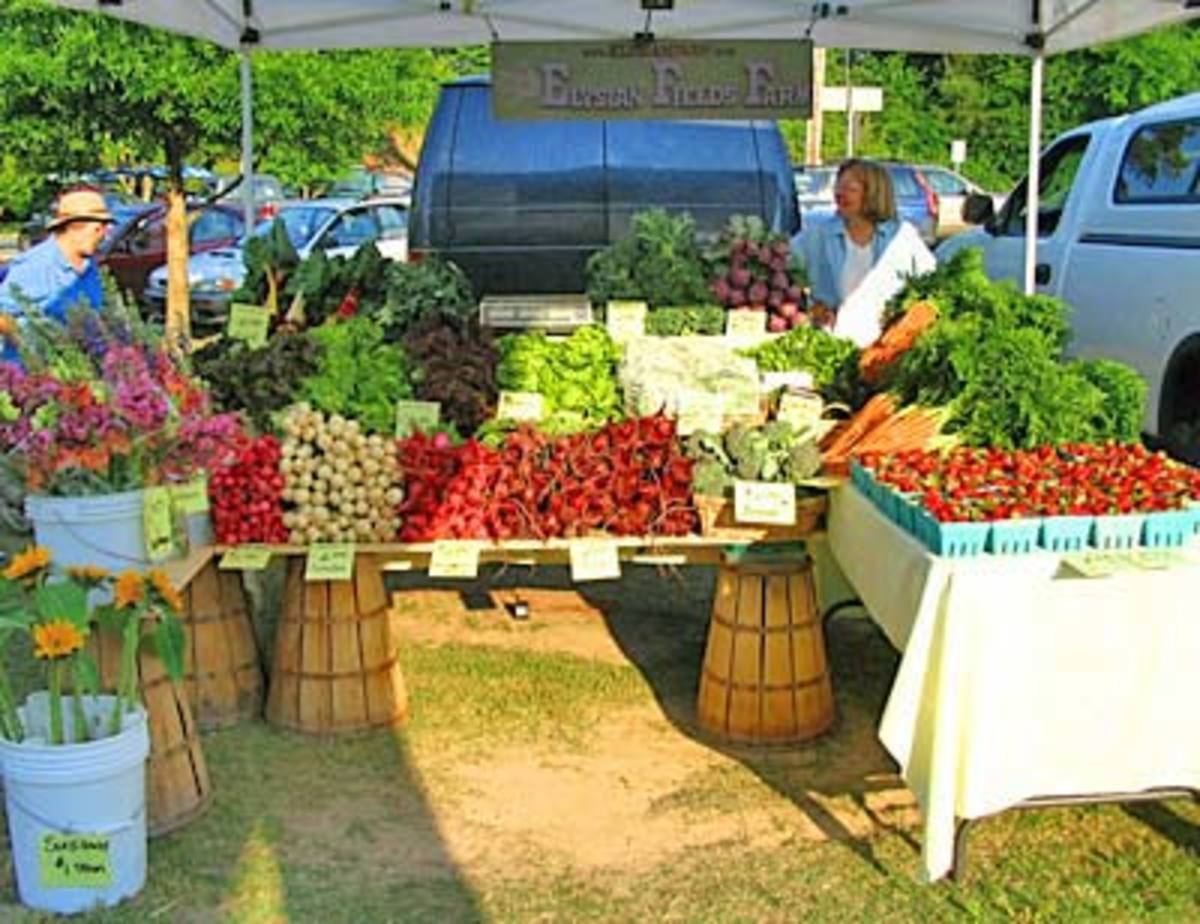Allotments and Community Gardens
Your own Plot Of Land
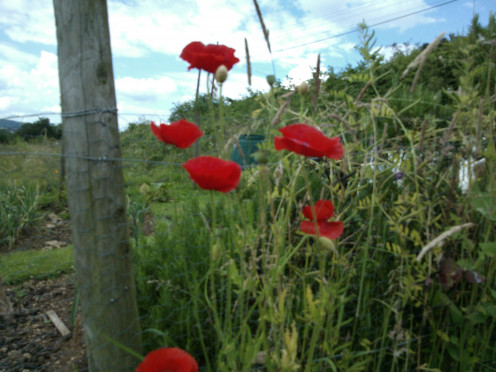
Space To Grow
Today community gardens or allotments can be found all over the world. They provide an opportunity for people to grow their own food and get fresh air and exercise at the same time. For many city dwellers the chance to work on the land is therapeutic and rewarding. Although there are many types and sizes all are generally run by no-for-profit trusts or local authorities, with annual fees and shared tasks for members.
The principle of putting aside land for people to feed themselves can be traced back for nearly a thousand years and has been invoked in times of national crisis as well as for personal wellbeing or principle.
Early Beginnings
During the middle ages, in the largely agricultural society of north western Europe, an open field system was commonly employed with surrounding fields typically split into strips and divided between all the villagers.
After the Norman conquest land that ordinary people had used for generations to graze animals and grow food was slowly but steadily enclosed by landowners. This not only disrupted local communities relying totally on the land but also undermined the rural safety net that enabled the poor to feed themselves in hard times and prevented them becoming destitute.
Some benevolent landowners did restore common land to the poor in acts of charity to relieve extreme poverty but many poor families who had relied on common land suffered hardship and starvation.
Potatoes, Beans, Kale and Cabbage
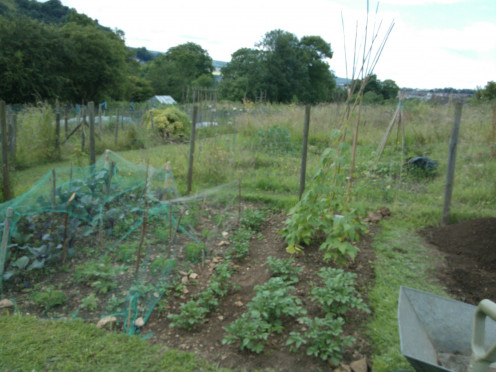
The Enclosures
The enclosure of common land that the poor depended on gathered pace and in the 18th and 19th century 5 million acres of public land in England was converted into private use, mainly for landowners and gentleman farmers. In some places entire parishes were enclosed, hedges appeared all over the country, and the landscape and economy started to change for ever.
One of the most well-documents protests and attempts to resist this came in 1649 when a group called ‘The Diggers’ took over some waste land in a mass trespass, sowing wheat, beans and parsnips. This was quickly stamped out but establishing ‘the right to dig’ became a recurring theme throughout history.
Eventually, in 1845, The General Enclosure Act attempted to resolve this tension between the landless and landowners by establishing the compulsory provision of ‘field gardens’ for the poor.
Community Allotments in The Cotswolds, England
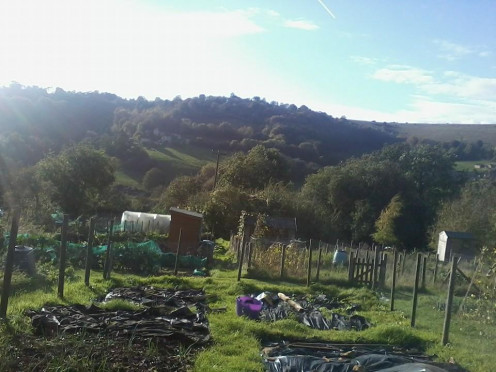
A Victory Garden Poster From World War Two
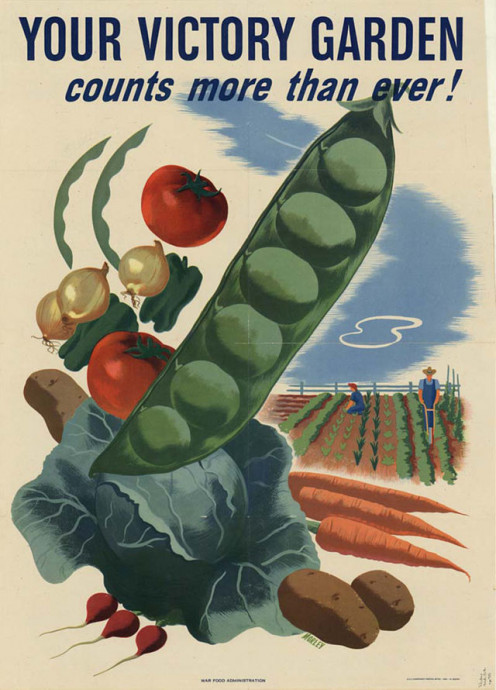
Victory Gardens and 'Dig For Victory'
Wartime gave the need to grow food a new significance and finding land to cultivate became an imperative. In the first world war Woodrow Wilson said "food will win the war" and this was just as important during the second world war. It is estimated that during WW2 in the USA one third of the vegetables produced in the USA came from community gardens as a result of the victory or war garden initiative. People responded to the call to help produce food with victory gardens on apartment building rooftops and vacant lots. Public spaces from London’s Hyde Park to San Francisco’s Golden Gate Park were given over to feeding the country.
A few of original survived, such as Dowling Community Garden in Minneapolis, which remains from those times. More recently Michelle Obama famously returned the Eleanor Roosevelt’s Victory Garden by planting a kitchen garden at the White House.
In Britain, where over 55 million tons of food were imported at the beginning of the war, with the requisitioning merchant shipping for other purposes and the obvious threats in the Atlantic, there was a real danger of the Country starving. By 1945 imports had halved and an estimated 1.4 million people had allotments.
The Benefits of Having Your Own Vegetable Plot
- Just 30 minutes of gardening can burn calories and contribute to good physical and mental health.
- Growing your own food can result in significant savings on the weekly food shop
- Meet people in your community
- Community plots support green corridors for wildlife
- Growing food reduces your carbon footprint by saving food miles
- Most of all you will be feeding your family with organic, natural food.
Taking A Break

The Modern Era
In the 21st century community gardens and allotments are experiencing a renewed popularity. In Britain alone there are an approximate 330,000 plots with demand constantly rising.
Greater affluence in the post war period saw a decrease in community gardening, which became associated with an earlier, rather old-fashioned era. However the growing concern about excessive packaging and chemical use in food production at the end of the 20th century revived its fortunes. Today garden and allotment plots have become a crucial part of the ‘greening’ of urban environments, creating spaces for people living in cities to connect to the land again. Even if you are not a gardener they are a great place to walk, watch wildlife and get some space and fresh air so let’s hope that they’re here to stay.
National Allotment Society, UK
Allotment.uk.com
Advice and Inspiration
- Vegetable Gardener: How to plant and grow veggies like tomatoes, peppers, beans, and herbs in your k
Learn how to start and care for a vegetable, herb, or kitchen garden, from selecting the best heirloom and hybrid varieties to growing, harvesting, cooking with, and preserving your vegetables, herbs, fruits, and berries.

